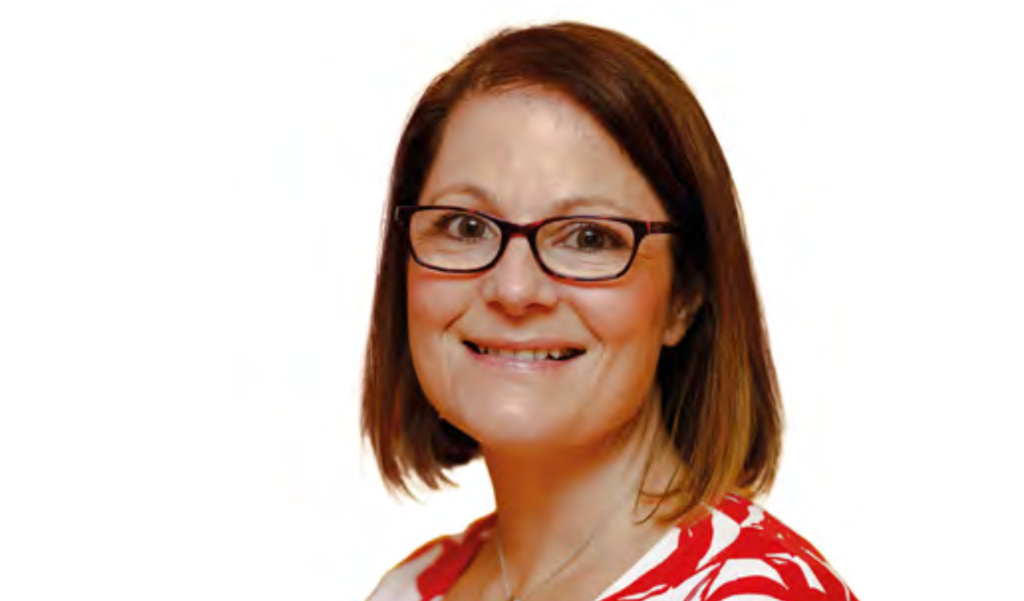During the first lockdown of the pandemic, I found I was much more anxious and frustrated than usual. I was angry all the time and not sleeping which, no doubt, made things even worse. I knew something wasn’t right, but I wasn’t sure what.
Initially, I put this down to nervousness around the pandemic – we were, after all, going through very uncertain and scary times. But the longer it went on, the more concerned I became – the brain fog and inability to get my words out in meetings just wasn’t like ‘me’. I’ve always thought of myself as being on top of everything and I started to worry about what everyone else was thinking; it really started to affect how I identified with myself.
Eventually, I thought – could this be the menopause? I was in the right age bracket, but I wasn’t experiencing the usual symptoms which is why I contacted my GP. I talked to them about the positive lifestyle changes I had been making in a bid to help improve things but unfortunately I had little success in finding out from my GP what was wrong.
Feeling disheartened, I turned to Google. I was willing to try anything. After a lot of research, I discovered Peppy, a digital health app designed to help both women and men through a range of life changes such as fertility and menopause. Although it wasn’t available to individuals, I decided to have a chat with the team at Peppy and quickly realised it could be a great service for our staff members and other corporates. Having spoken with our chief people officer, Judy Parfitt, we were able to introduce Peppy, providing access to our colleagues, all within 10 weeks. A month later, we then went on to launch Peppy as part of our health insurance offering and I’m pleased to say that we’ve helped thousands of members, and we continue to get overwhelmingly positive feedback about the partnership and support it offers.
Pre-Peppy, I had kept everything to myself which, on top of the pandemic, had left me feeling extremely isolated. Peppy changed this and provided me with the opportunity to talk to other women completely anonymously; it was (and is) a safe space for me to voice how I was feeling without fear of judgement. It gave me a very much needed sense of community – people who understood exactly how I felt – even when I couldn’t articulate myself. There really is power in conversation, particularly when it’s a topic many don’t want to talk about.
Peppy also provided me with a 40-minute conversation with a menopause specialist, which I can say wholeheartedly changed my life. It gave me a broader review of my health and wellbeing and helped me to join the dots between how I was feeling and what was going on in my life more generally, providing me with a detailed report that I later shared with my GP. One phone call later, I was put on HRT which, although it hasn’t solved everything, has made me feel much more like myself.
What has my menopause journey taught me? Ultimately, it’s that menopause needs to be talked about more. I can guarantee you that in a room of colleagues there will be someone going through it themselves, or someone’s wife, sister, or friend. There is no one ‘typical’ journey through menopause and it’s important to acknowledge that people are impacted in different ways; it doesn’t just affect you – it affects those around you too.
From a workplace point of view, it’s important that we recognise the importance of the conversation and commit to continuing it. For some organisations, this means implementing policies, although menopause cannot be treated as a tick-box exercise. Any intervention provided in isolation won’t cut it when it comes to women’s – or men’s – health.
People don’t need to be experts in menopause, but understanding that it can be debilitating, signposting specialist support where available and listening are key. Support can take many forms – it can be anything from changing working hours and enabling work from a cooler environment, to extended periods of leave or just being someone to talk to.
I’m pleased to see the progress society has made in recent years around menopause, and how much more the conversation is had in public. It brings me great comfort knowing that my daughter hopefully won’t go through the same hurdles as I and many women before me have. Going forward, we all need to ensure that menopause stays top of the agenda and part of the discussion around women’s wellbeing in the workplace.
